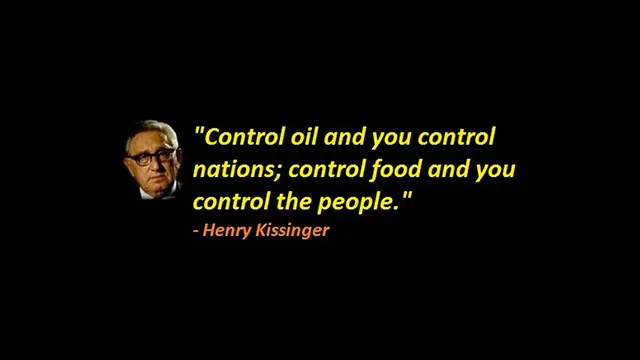Anarcho-capitalists (AnCaps) frame their ethics in terms of the non-aggression principle, (NAP) which states that no one has the right to initiate force against anyone else. From this first principle, they attempt to justify the institution of private property.
Communist anarchists (AnComs) have criticized this approach because it is too simplistic and actually justifies certain types of injustice. Furthermore, this approach is actually based on the violation of the NAP.

Suppose there are two people on a desert island. One of them has a lifetime supply of food and drinking water. There are no other resources on the island. Upon AnCap ethical principles, it is socially acceptable for the one man to monopolize the resources and allow the other man to starve or thirst to death in front of him. In fact, Rothbard himself contends that a woman has committed no injustice if she allows her newborn child to die of starvation or exposure, so long as she does not actively kill him with a knife or something of that nature.
The AnCom is right to reject AnCap ethics. It is certainly more cruel to allow a child to die slowly from exposure or starvation than it is to kill them quickly with a bullet or a blade. Similarly, on the desert island, the man monopolizing all the resources would be committing less of an injustice if he outright murdered the other man. If he withholds necessary resources when there are sufficient resources to meet the needs of both individuals, he cruelly causes the man to suffer and die slowly. And no inquiry into how the first man came to possess and monopolize the resources will change the injustice of his refusal to share his resources with the second man. The true anarchists say that AnCap ethics is totally backwards. A monopoly, even if one “comes by it honestly,” is a form of violence. And capitalistic private property is monopolistic.
And the AnCap’s inconsistencies are not far off now. The second man is faced with inevitable death if he does not take some of the resources away from the first man. This second man, however, has no need to resort to aggression against the first man. He will simply ignore the first man and casually walk over and grab the food he needs. If the first man wishes to enforce his unjust monopoly, then he must initiate aggression against the second man and use physical force to prevent him from taking the food and water he needs to survive. AnCap property is actually predicated on the violation of the non-aggression principle by the proprietor or his representative. Capitalism is a system of violence.
Since many AnCaps claim to be Catholic and to base their ideology on religious principles, it is worth noting that this communist anarchist analysis actually coincides with the analyses of Thomas Aquinas and the scholastics, who have always held that necessity overrides property rights.

We may frame this conversation better in terms of the “law of equal liberty.” One's right to control of, or exclusive use of, personal possessions in limited by the “equal liberty” of others. As long as necessary resources are in abundance enough to allow others the equal liberty to survive and have sustenance, then all is well. But if you monopolize resources to an extent that prevents others from having equal liberty to survive and/or thrive, then you have transgressed against equal liberty and committed an injustice.
Under conditions of scarcity, where one person cannot monopolize or hoard resources without forcing others to go without, rationing is ethically justified. Communism doesn't necessarily entail rationing, but rationing usually requires something like communism. Thus, for most of the world—most of Africa, most of the Middle East, and most of Central and South America—communistic arrangements are the only sort of arrangements that could possibly be justified. If these places are to have communistic arrangements, I would want them to be libertarian communistic arrangements based upon direct democracy. While communist anarchism isn't the model I would recommend for the United States, I am genuinely supportive of communist anarchism.

Returning to the Crusoe econ illustration... Let’s suppose that the first man is stronger than the second and is able to successfully uphold his monopoly on the resources needed for survival. The first man, who happens to have all the food and water, does not refuse to give the other man enough resources to survive, but instead puts stipulations on his sharing. He says, “I will let you have some food and water, but only if you will do all of my chores for me.” The second man, if he is not strong enough to resist the first man and take food and water for himself by force, will have no alternative. The second man will have to allow himself to be enslaved to the first man “voluntarily.” Of course, the choice isn’t voluntary since the man’s only other option is death.
In modern capitalism, we find the wage-slave to be in a similar situation. He does not own the means to sustain himself and thrive independently of others, so he has no choice but to “voluntarily” take a job in the wage labor market and go to work for some capitalist who does happen to own some means of production. So AnComs have said that wage labor and the employee-boss relationship is not voluntary, since there is no other alternative but starvation for the working class. Furthermore, the whole arrangement is predicated on violence. The capitalists can only exclude the proletariat from ownership through force. The situation under modern capitalism is really the same as the simple Crusoe economics illustration I gave before. It only appears to be a voluntary or non-aggressive system because everyone knows that violence will come to them if they do not abide by the capitalists’ rules and respect their arbitrary property claims. If you were to try to “steal” the means of production from your employer or take your apartment from your landlord by ceasing to pay rent and homesteading the place anyways, you would be confronted by violent men with clubs and guns and shiny badges. Since it is so well known that this is what would happen, people generally don’t try to take land, machinery, and productive property away from the capitalists and landlords. Thus, it usually doesn’t come down to physical violence. The threat of violence is sufficient to deter people from acting in a way that would require physical violence in order to maintain property privileges for the parasitic classes. Nevertheless, the violence and injustices that are plain to see in the Crusoe econ illustration are still there under the complexities of modern capitalism.
Personally, I think that we should reform American democracy along directly democratic lines, then reform the socio-economic institutions in a way that combines Georgism, mutualism, and libertarian municipalism. Thus, we might create a market system without private property. I'm not going to elaborate on that here, as I've written about it in my other posts and on my website. My goal isn't to convince you that my position is right, but to illustrate that the AnCap position is seriously flawed.